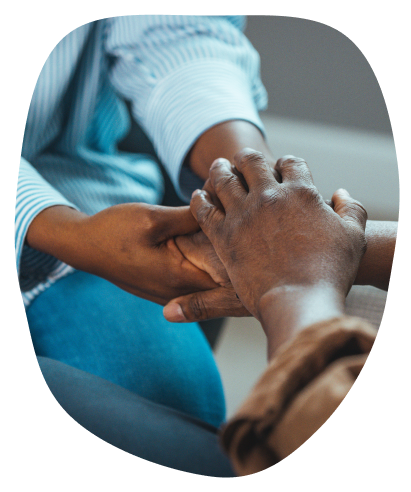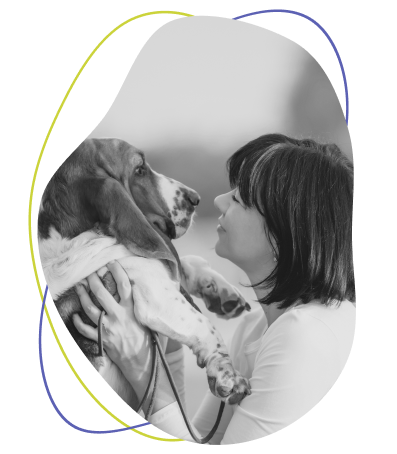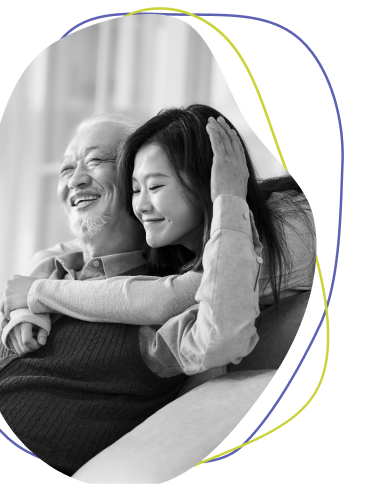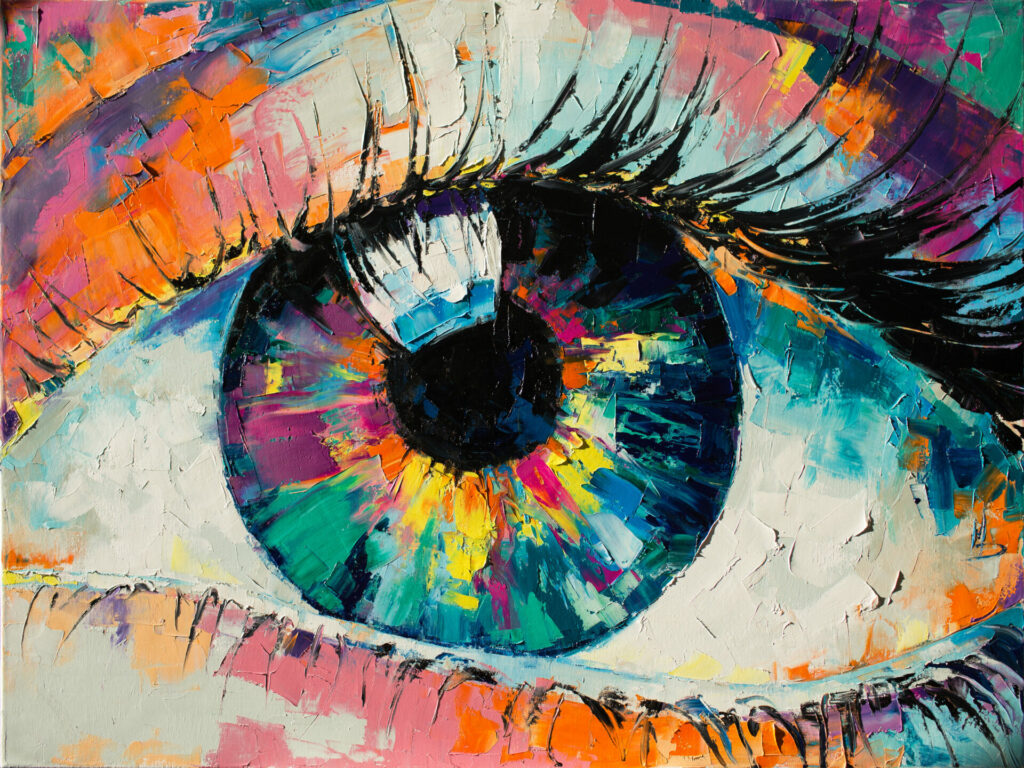
You may be having a difficult time re-adjusting to life after death. Perhaps you feel a pervasive sense of longing that keeps you distracted and unable to focus or stay present. Maybe you cry frequently, struggling with frequent and intense emotions that you can’t seem to regulate. Due to the unpredictability of your stress response, you might avoid being around others or doing the things that once brought you joy.
Alternatively, your grief might be characterized by numbness or detachment. You may be so overwhelmed by the loss that you can’t cry or sort through your emotions. Or perhaps you’ve lost your appetite and become apathetic toward your work, relationships, and everyday life. Grief often impacts sleep patterns, so you may find that you’re sleeping more or less than you did before the loss.
Whether you’re coping with the death of a parent, partner, friend, family member, or pet, you may feel flooded by memories of the person you lost. And if they died after an illness or with an unresolved conflict between the two of you, you may feel a profound sense of guilt or regret.
You might be doing everything you can to avoid reminders of your loved one so that you can reduce the impact of sad or uncomfortable emotions. Unable to fully acknowledge their death, you may distract yourself or numb the pain of your grief.

All of us will encounter some form of grief or loss in our lifetimes. After all, it’s been said that grief is the price we pay for loving someone. In this regard, bereavement is an experience that humanizes and humbles us.
No matter how much our day-to-day routine may change, the death of a loved one is a significant life event. Just like a career transition, a move, or a breakup, the grief process shakes up our foundations, often presenting in unexpected and sometimes unhealthy ways.
While symptoms of bereavement—like sadness, isolation, and tearfulness—are normal responses to loss, they can snowball and substantially interfere with our lives and relationships. When this happens, it’s likely we have developed what’s called complicated grief, which can result from any kind of grief left untreated.
Unfortunately, there are a lot of misconceptions and myths surrounding grief that can keep us from seeking bereavement counseling. We may convince ourselves that time will heal all of our wounds, or perhaps unresolved issues with the person we lost are keeping us stuck in a cycle of immense guilt, undeserving of help and support.
Not to mention, our culture perpetuates some very unhealthy expectations about what grief looks like and how long we should spend coping with the loss of a loved one. Many of us believe that grief expires and just disappears after a year, which can lead to the assumption that something is wrong if we’re still feeling the pain of grief years after the loss takes place. Similarly, we may avoid leaning on friends and family for support beyond a specific timeline, as we believe that we should be “over it” at a certain point.

When the death of a loved one has turned your world upside down, it can be hard to find your bearings and fully understand your experience. The safe space of therapy allows you to explore your emotions and express your feelings in a way that will provide you with insight into your grief. Working together, you can learn to identify grief triggers and develop skills for coping with the loss so that you can make healthy, intentional choices.

FOUNDER & ART THERAPIST
LCAT, LPAT, ATR-BC
WE BELIEVE EVERYONE HAS A UNIQUE STORY AND SOMETIMES, WORDS JUST AREN'T ENOUGH TO TELL IT.



At Creative Arts Therapy Source, art isn’t just an activity; it’s a language that allows you to express your deepest emotions, fears, dreams, and hopes. Your artwork becomes a window that offers a comprehensive view into your pain, experiences, and the hopes you have for the future.
We want therapy to be a joyful, enlightening, and playful exploration where you are free to express yourself in a way that feels right to you. Talk therapy, with the support of art therapy, can help you uncover a new perspective.
We want to help you tell your story







Grief counseling begins with a simple, stress-free intake process that will help us understand the loss and its impact on your life. In our first session, we will discuss your intake, go over primary challenges, and create attainable goals for therapy.




From there, we will collaborate as we identify specific concerns and establish concrete coping skills and techniques to help you process your loss. In this phase of counseling, you will learn healthy ways of expressing your emotions and gain awareness of the situations that trigger your grief. Throughout the therapeutic process, there will also be opportunities to examine the relationship you had with your loved one as you have a chance to apply helpful coping mechanisms when discussing their death.




Therapy can enhance your understanding of the grief process and normalize your experience. Not only will you learn new ways to express your emotions—you’ll become more comfortable in doing so. And as you develop coping strategies, you will be able to manage your stress response effectively.


Grief is a natural process that you will get through. This doesn’t mean that you will forget your loved one or that you’ll never experience grief and loss again, but with the empathetic support you’ll find in counseling, coping with the death of a loved one is possible.
READY TO GET STARTED?



In addition to traditional talk therapy, grief counseling sessions typically incorporate Art Therapy. This method involves using various forms of art media (such as paints, pencil, and clay) to convey your experiences, challenges, and emotions.
Because the artistic process requires a certain degree of mindfulness, Art Therapy can help you become more relaxed and aware of what is happening in your mind and body. And since this approach to counseling is predominantly nonverbal, you can feel safe to express the feelings that may be too difficult to put into words. Creating art will help stimulate memories of your loved one as you contribute images and ideas to their lasting legacy. In practicing creative expression, you can find a healthy outlet for otherwise uncomfortable emotions and adjust your outlook on life.
We understand that you may be experiencing some very intense emotions right now, and that’s okay.
Committing to grief counseling is the first step you can take to learn how to get a handle on your emotions. If you’re having a hard time talking about the loss, Art Therapy will give us a chance to circumvent some of the verbal processing of your grief. In addition, we will teach you helpful coping strategies that incorporate deep breathing and mindfulness when you feel triggered by the loss. These methods will help you to regulate your emotions and coherently express your feelings.
Our own encounters with grief have allowed us to understand just how disruptive and life-changing a loss can be. And because we have firsthand experience with grief, we can create a soothing, nonjudgmental counseling atmosphere where we can collaborate on a treatment plan that works for you.
For over a decade, our combination of traditional psychotherapy and Art Therapy has allowed our clients to express their emotions, re-energize their spirit, and adjust their outlook on life. We believe that grief counseling can help you too.
STILL HAVE QUESTIONS?
Our administrative assistant can answer your questions and match you with the best therapist for your needs.
If you have any billing, scheduling or log-in questions or any other inquiry, contact us here.


Offering in-person therapy on Long Island and online therapy across New York and New Jersey.